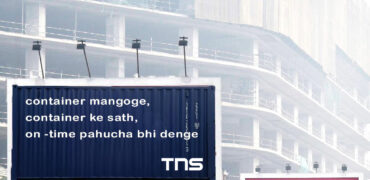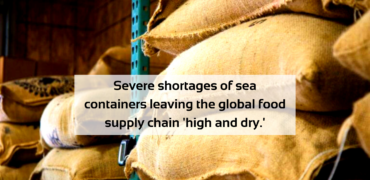NVOCC is one of the terms you would have heard frequently in everyday business especially if you are in the US or Chinese business sectors.
NVOCC represents Non-Vessel-Operating Common Carrier is somebody who embraces to play out all the administrations of a VOCC yet without purchasing or working vessels, as the name suggests.
VOCC represents Vessel Operating Common Carrier – additionally referred to differently as Ocean Carrier, Shipping line.
Registrations and Regulations overseeing NVOCC.
The US market most likely has the biggest number of NVOCC administrators on the planet and the Federal Maritime Commission (FMC) which manages their activity in the US, has some severe guidelines to be followed.
FMC characterizes Non-Vessel-Operating Common Carrier as:
- a common carrier that holds itself out to the public to provide ocean transportation, issues its own house bill of lading or equivalent document, and does not operate the vessels by which ocean transportation is provided.
- a shipper in its relationship with the vessel-operating common carrier involved in the movement of cargo.
Before offering administrations in the US Trades, an NVOCC is needed to follow certain conventions including.
- making sure about a permit from the FMC.
- submit verification of monetary obligation regarding the installment of any cases that may happen and.
- distribute a levy of charges that will be applied to their customers.
A non-US based NVOCC should likewise remember for its levy recording, subtleties of a specialist for the treatment of their administrations in the United States.
In the other enormous NVOCC market of China, its Ministry of Transport (MOT) actualized NVOCC Freight Filing Rules in 2010 which expected them to enlist with the MOT and to show evidence of “protection” or money security stores of up to RMB 800,000 or the U.S. $125,000.
Without this registration certificate issued by the MOT, US NVOCCs could not give their home bills in the US/China exchange paths without danger of significant sanctions and penalties.
It was accounted for therefore that during the China/US levy strife in 2019, the MOT had discreetly liberated these oppressive enlistment methods and dropped formal application enrolment and protection necessities for all NVOCCs, including those from the USA.
The necessity by the Shanghai Exchange for NVOCC recording rate ranges, in any case, stays set up.
There likely could be different nations and significant wards which have explicit guidelines for the activity of NVOCCs yet at this stage, those necessities, or the requirement for enrolment of an NVOCC in these spots is unintelligible.
On the off chance that any of you are aware of any locale where the enrolment of an NVOCC is carefully followed, kindly remark underneath.
NVOCC Operators and Bill of Lading
An NVOCC may have their own bill of replenishing with its own terms and conditions which might be the equivalent or not the same as that of a sea transporter. This bill of filling is known as a House Bill of Lading (HBL) and this bill of replenishing may satisfy all the jobs and elements of a bill of replenishing subject to it being given effectively.
This HBL will have the subtleties of the real transporter, recipient, inform gathering, and all the genuine subtleties of the payload including portrayal, weight, volume, and any remaining shipment subtleties.
The NVOCC thus gets a bill of filling from the sea transporter which is known as the Master Bill of Lading (MBL).
The lone data that ought to be diverse in the MBL from the HBL is the transporter, recipient, and tell subtleties which will generally be the subtleties of the NVOCC at the POL as the transporter and their office/specialist at the POD as the agent. Any remaining subtleties ought to continue as before.
NVOCC Register
As far as the issuance of HBL, the International Maritime Bureau (IMB) gauges from its work in confirming Bills of Lading, that more than 95% of all inappropriately given Bills of Lading are given by NVOCCs.
The IMB further recognized that there is a pervasiveness of issuance of inaccurate bills of filling by the NVOCC which is then introduced to banks and different partners in the exchanging and account chain, aiming to swindle the exchange account framework, potentially for numerous financing, illegal tax avoidance, and so on
To beat this, in 2019, the IMB set up a register for Non-Vessel Operating Common Carriers who consent to submit to the IMB Code of Conduct for the legitimate issuance of NVOCC Bills of Lading.
The motivation behind the Register is to improve hostile to extortion norms and give a system to perceive taking an interest NVOCCs who stick to a base norm against misrepresentation measures in their activities.
Banks who are individuals from the IMB would now be able to check whether the NVOCC named on the bill of filling introduced to them has joined the IMB Code of Conduct.
This gives a type of confirmation to the banks and clients that the NVOCC bills of replenishing gave by these NVOCCs satisfy satisfactory guidelines. There are obviously ramifications for NVOCCs who neglect to go along.
Alright, so what is the part of an NVOCC??
An NVOCC is frequently named a “transporter to transporters” and “transporter to transporters”. What does this mean??
At the most fundamental level, an NVOCC goes into volume-based sea cargo game plans with different transportation lines working across different exchange paths. This means an NVOCC purchases space from an Ocean Carrier in a bulk (like a distributer) and offers that space to different transporters or forwarders at a marked-up rate (as a retailer) on a similar Ship/route.
An NVOCC could conceivably offer their own or rented holders to clients and by and large, will utilize the transportation line’s compartments.
Because of this game plan, an NVOCC can make their own duty dependent on which they sell space on these liner administrations to their different customers. An NVOCC’s customer rundown may incorporate.
- BCO – Beneficial Cargo Owner which is another term for Exporter or Importer.
- Freight Forwarder
- Clearing Agent
- Freight Broker
Depending on certain jurisdictions and markets, an NVOCC’s exercises may incorporate however not confined to underneath:
- concluding contracts of international carriage of goods with the shippers as carriers.
- receiving and delivering cargo as carriers.
- issuing House bills of lading or other transport documents.
- collecting freight and other service charges.
- booking space and arranging to ship with mainline carriers.
- paying port to port transportation freight or other transportation charges.
- consolidation and deconsolidation of containers either using their own CFS or 3rd party.
You, as a transporter or forwarder may profit by the volume-based rates that an NVOCC can haggle with the transporters as the transporter or forwarder who books with the NVOCC might not have similar volumes the NVOCC has and will most likely be unable to make sure about similar rates as the NVOCC can.
For instance, Expeditors International who was positioned by Descartes Datamyne as number 1 in the Top 50 NVOCC administrators (Asia/USA) dispatched around 423,000+ TEUs for 2020.
They would have special rates with all transporters that they utilize dependent on their volume uphold. A transporter or forwarders who perhaps dispatching 10,000 or 20,000 TEUs a year (large for what it’s worth) will most likely be unable to make sure about the same rates from the transporters.
An NVOCC can and now and then possess and work their own or rented compartments and relying upon the different kinds of agreements, an NVOCC concurs the status of a virtual “transporter” and in specific cases acknowledges all liabilities of a transporter.
Under this, an NVOCC will have their own representative at Port of Load and Discharge to deal with the necessities for the arrival of merchandise and holders to the customers.
For a transporter, having a customer like an NVOCC might be gainful additionally because of the volumes that they can uphold which at that point turns into a base payload for the transporter.
Conclusion
The matter of transportation of holders from A to B includes a few partners across the chain. An NVOCC is a key stakeholder in this business and has a particularly important role in some of the cases acting as a bridge between carriers and shippers.







